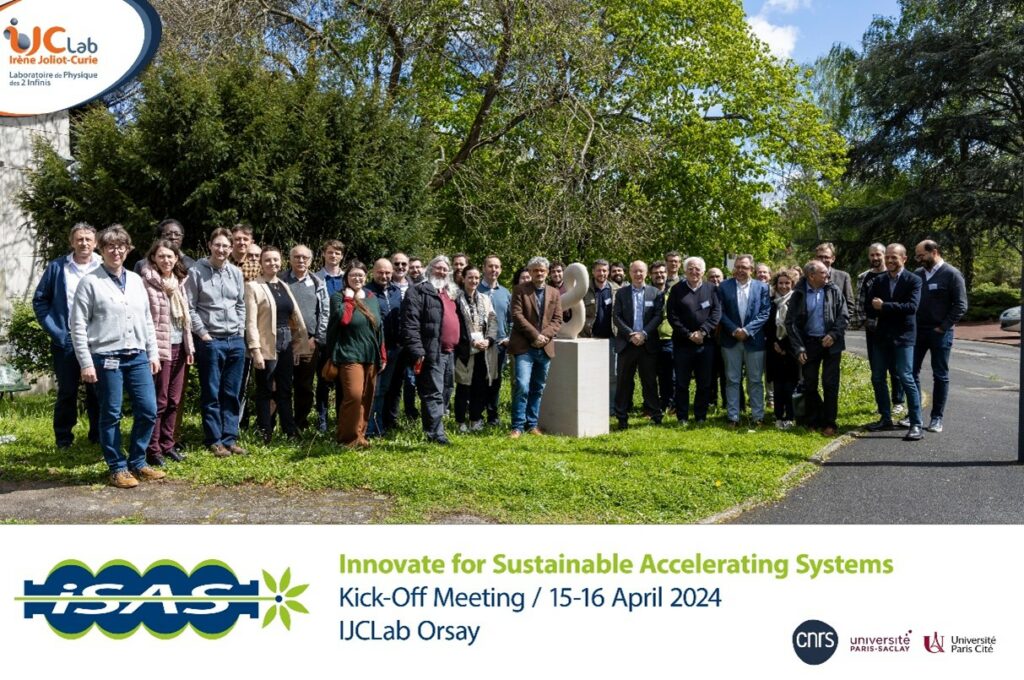The 1st of March saw the start of the European Project iSAS (Innovate for Sustainable Accelerating Systems). Its ambition is to expedite the development and deployment of energy-saving technologies that are at the core of the Superconducting Radio Frequency (SRF) accelerating systems for many accelerator-driven Research Infrastructures (RIs) and to enable a broad portfolio of future industrial applications.

The project has been funded by Horizon Europe with about 5 M€ over four years duration, and the iSAS consortium comprises 11 academic laboratories from 7 European countries and 6 industrial partners from 4 countries worldwide, including the Cockcroft Institute’s partners ASTeC and Lancaster University.
With the ambition to maintain the attractiveness and competitiveness of European RIs and to enable Europe’s Green Deal, iSAS plans to establish enhanced collaboration in the field to broaden, expedite and amplify the development and impact of novel energy-saving technologies for particle acceleration.
For many frontier accelerators SRF systems are the enabling technology. iSAS will innovate in those technologies that have the largest leverage for energy savings to minimize the intrinsic energy consumption in all phases of operation. In the landscape of accelerator-driven RIs, the iSAS project’s focus is complementary to other developments to reuse the waste heat produced, to develop energy-efficient magnets and to operate facilities on opportunistic schedules when energy is available.
The long-term ambition of iSAS is to catalyse the implementation of the European Accelerator R&D Roadmap, not only achieving technology readiness to realize the potential energy savings at RIs, but also training experts and newcomers in the field.
